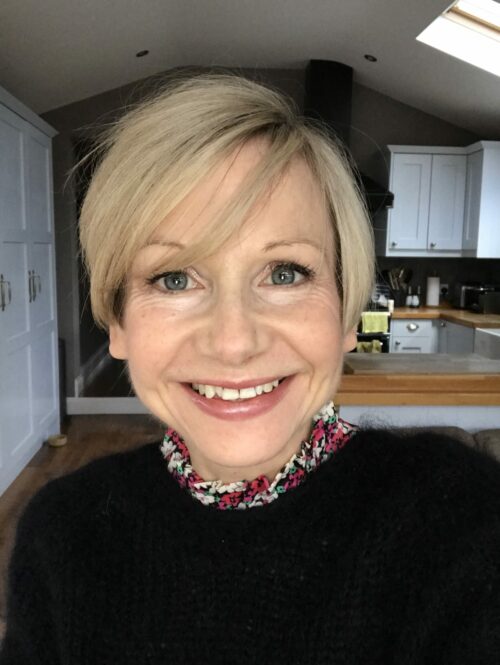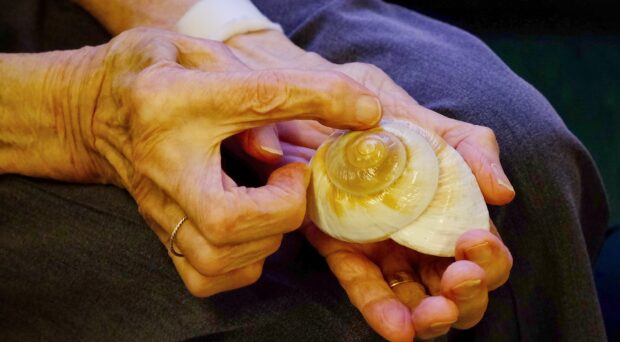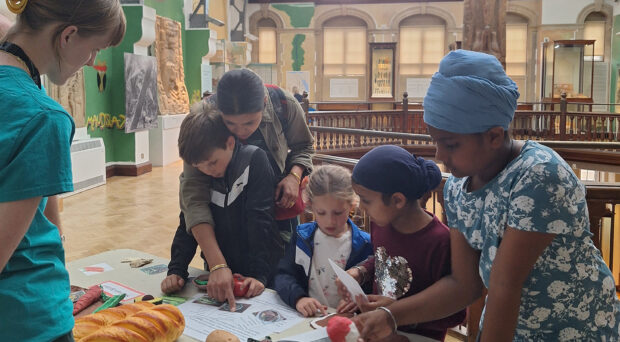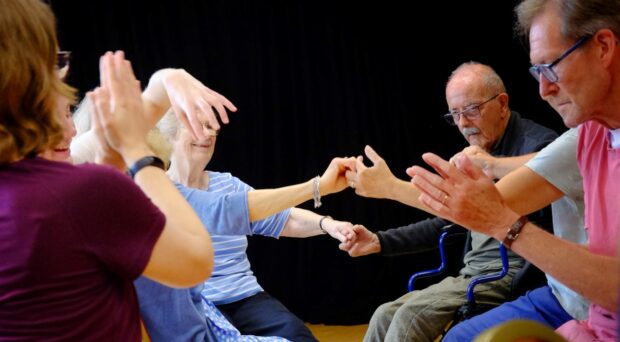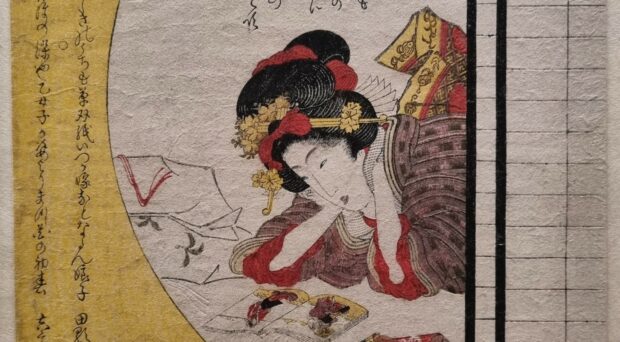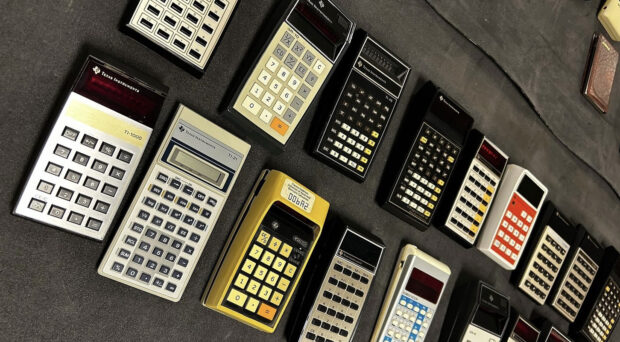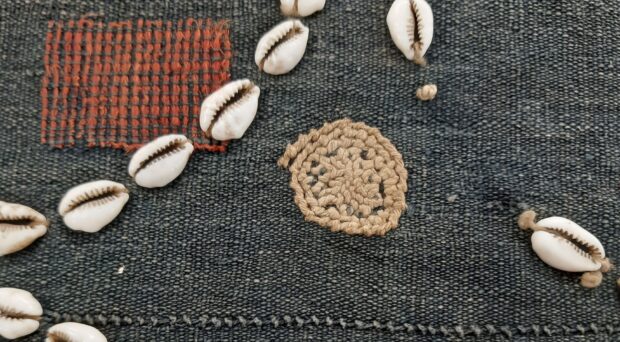Covering the period 1 October – 31 December, here is an insight into some of the stories behind our NPO-funded activity. Discover more about the work our museums and collections have been delivering under the main themes of: Social Justice, Our Planet, Creating Opportunities, Health and Wellbeing; as well as the additional delivery underpinning our programme enablement.
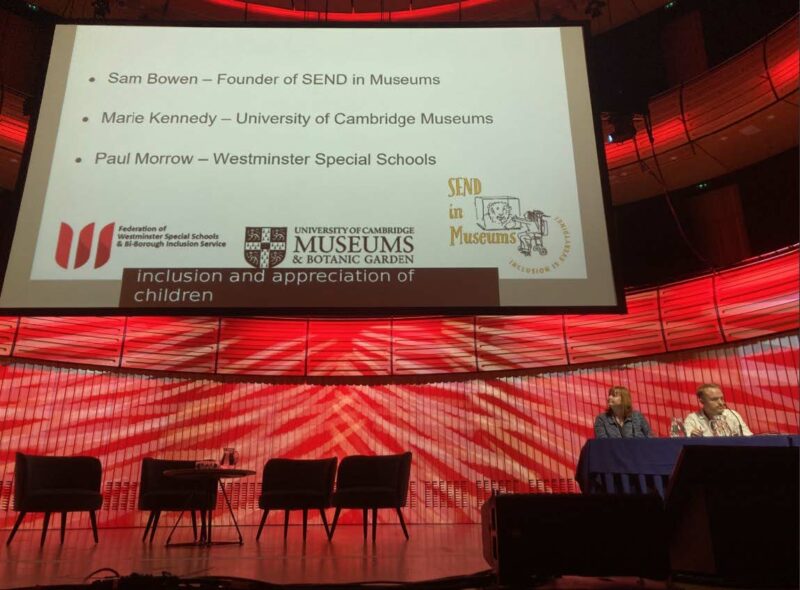
Activity overview
This period has seen us continue the delivery of our NPO programme around the main themes of Social Justice, Our Planet, Creating Opportunities, Health and Wellbeing, and Programme Enablement.
Throughout the year, we have been piloting research and development grants to support individual members of the consortium or groups of collections to develop new ways of working with audiences and creative practitioners.
These have focused on the Social Justice and Our Planet themes, and are a new approach for the NPO programme. Some of the projects are showcased below, and we plan to run the scheme again in Year 2, building on our experience of delivering this pilot year.
Case Studies: Social Justice
By inviting members of the community to contribute ideas for activities on the theme of Power, our Open Call programme has aimed to raise the profile of community voices in our museums. Following initial submissions, we were excited to host two events during this period which were developed and led by
community practitioners.
My Science Story
Women are significantly underrepresented in scientific careers, and although things are changing, traditionally they have not featured in the stories we tell of the history of science. Facilitated by local artists Katherine Van Uytrecht and Katy Drake, “My Science Story” at the Whipple Museum of the History of Science invited women working in science to explore and share their experiences of
working in this field through a Zine making workshop.
Drawing inspiration from the Museum’s collection and its stories of the history of women in science, the session aimed to offer a context where views could be expressed more freely, connections could be made and feelings of isolation reduced. Feedback from participants following the workshop reveals how they
felt supported and enabled with all respondents agreeing that they “felt able to ask questions and offer my opinion” and that the event “had something to say about the world we live in.”
“Good conversation with knowledgeable women.”
“A thought-provoking, welcome session. It enabled me to think more broadly
about the relationship between women and science.”
Participant feedback, October 2023
This project was used as research to explore the potential of a longer-term artist
residency which would include visual responses to items in the Whipple
collection as well as workshops for the public, and targeted work with
participants who are less represented in the Museum’s audiences.
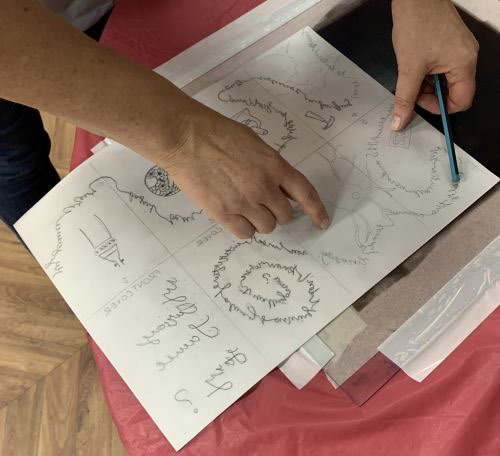
Taruwa
Featuring creative sets of music, spoken word performances and opportunities for conversation, “Taruwa” (meaning ‘gathering’) at the Museum of Archaeology & Anthropology (MAA) was developed by producer Lydia Idakula following her response to the Open Call.
Based on similar events Lydia had managed in Nigeria for 13 years, the event aimed to explore what power meant to her and the other performers as migrants and underrepresented artists in a new country; and to showcase the work of African and migrant artists in a UK setting.
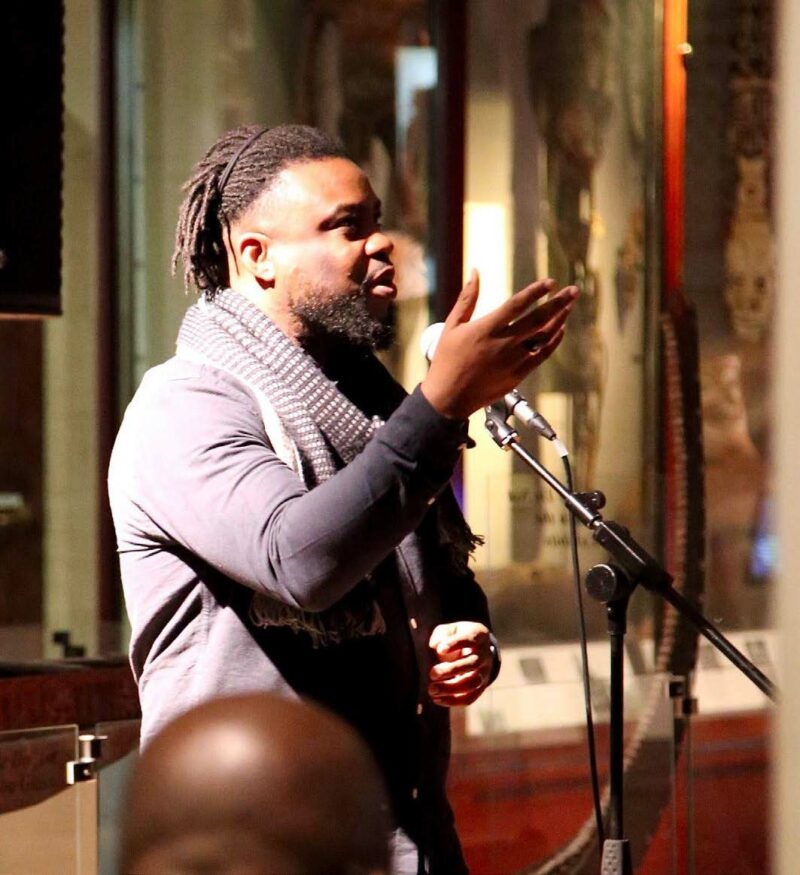
Attended by over 65 people – some travelling many miles to experience the first Taruwa outside of Lagos – the evening created the opportunity to be more experimental in our programming, and to encourage
underrepresented creative practitioners to respond to our collections and spaces in ways which were meaningful to them. Head of Public Engagement and Learning, Sarah-Jane Harknett, reflects:
“An emotional, powerful and empowering evening of performance, poetry, conversation and song: it was a privilege to host the Taruwa event in the Museum. It was experimental, outside our usual event type, but completely worth it. [Lydia’s] contacts and reputation were invaluable in bringing in the talent that she attracted. The connections we made with the performers are ongoing, one artist has been keen to continue conversations about how the museum and its collections can support them in their work with diaspora communities in the
UK.”
Sarah-Jane Harknett, MAA
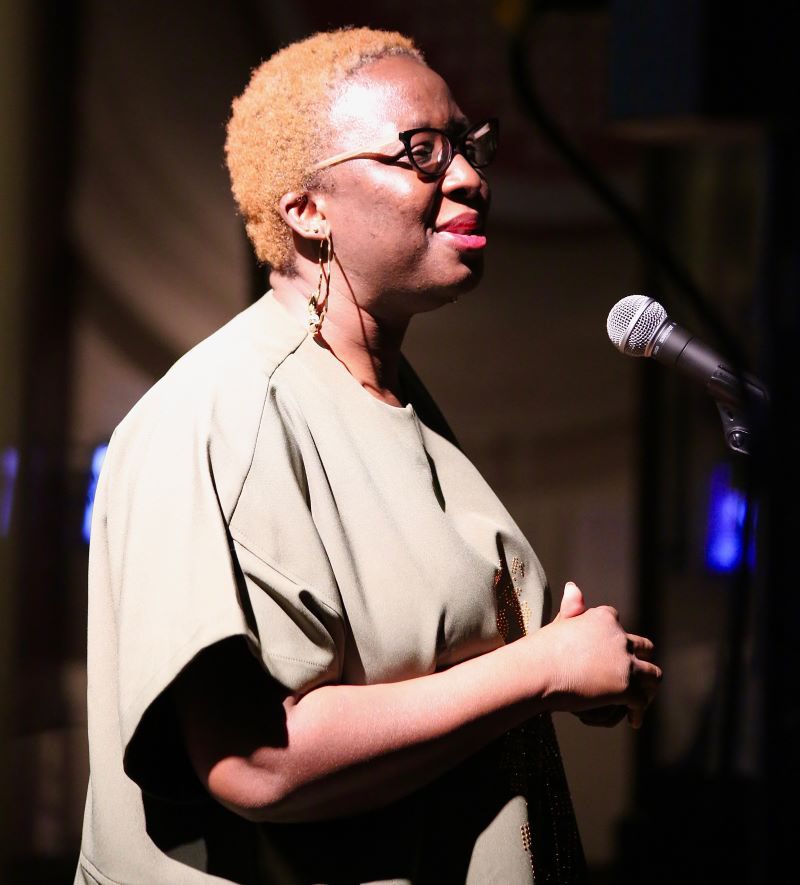
Describing the impact of working with the Museum in this way, Lydia commented:
“It was a truly amazing evening and I’ve had quite a few really beautiful and touching messages from people telling me how impactful the evening was for them. We also streamed it live on our Instagram page and we’ve had about 358 views and 500 accounts reached so far. I couldn’t have done it without you. I truly hope you are proud of what we pulled off.”
Lydia Idakula
Case Studies: Our Planet
Responding to the issues of climate change, biodiversity loss and unsustainable living in a way which engages and inspires hope has been the aim of some of our recent Collections in Action-funded work.
Between October and December 2023, research and development grants enabled three projects on the theme of Our Planet, all of which offered audiences the opportunity to connect and explore their relationship with the natural world in different ways; from listening to earthquakes as part of Sedgwick Museum’s Sounds of the Earth programme, to discovering urban winter wildlife at the Zoology Museum’s series of Winter Wildlife events.
Our Changing Planet
Our Changing Planet, featuring the collections of the Museum of Archaeology & Anthropology and the Museum of Zoology, encouraged families to think about the impact of environmental change both locally and across the world. Working with a ceramic artist and diaspora communities from Peru, the event featured performances, stories and activities which allowed families to connect with the issues in a thoughtful and playful way.
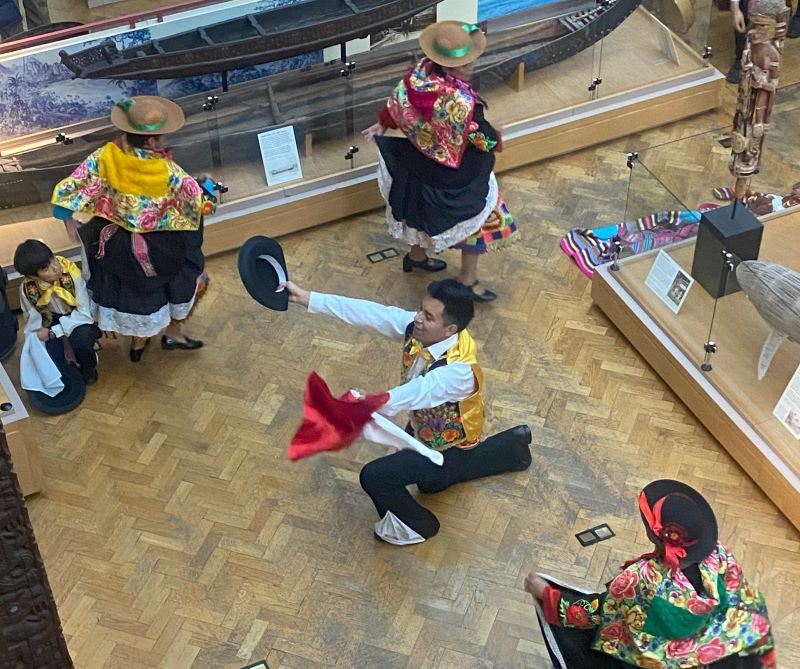
Feedback following the event demonstrated how strongly the environment and related issues resonate with our audiences with 100% agreeing that:
● The theme of the event was important/very important in their decision to attend
● The University of Cambridge Museums should be trying to engage the local community on the issue of climate change
Two-thirds of respondents commented that the event made them ‘feel inspired’, aligning with national research indicating that audiences wanted to engage with this subject but not in a way which made them feel guilty or ‘preached at’.
(Act Green Benchmark Report, 2023).
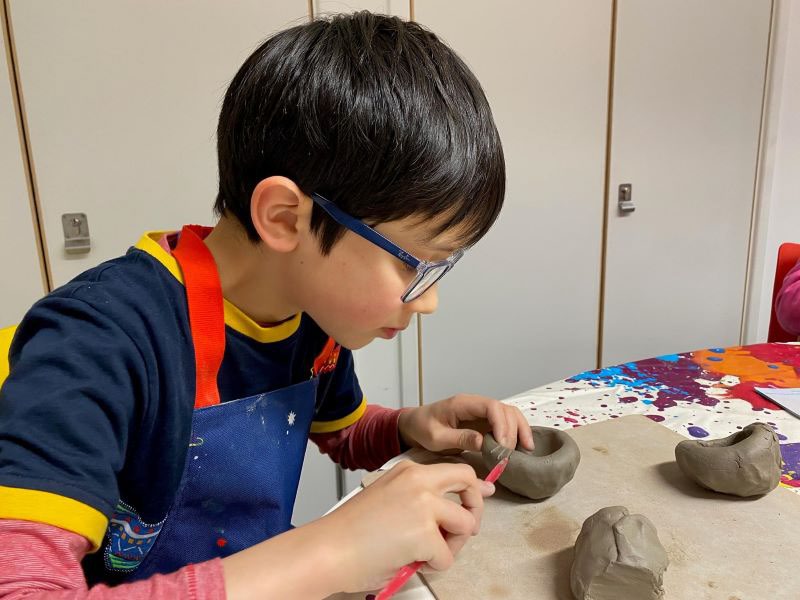
Case Studies: Creating Opportunities
Engaging in cultural activities can play an important role in reducing inequality and providing future opportunities. Our work with young people delivers activities which raise aspirations, and build skills and creative capacity. Working with strategic partner organisations, these programmes target young people in areas of higher socio-economic deprivation.
The UCM has a longstanding strategic partnership with North Cambridge Academy in Arbury, and each year the Fitzwilliam Museum, working in partnership with Kettle’s Yard, welcomes all Year 7s to a special day marking their transition to secondary school. For many, this will be their first encounter with a university space, and the events are designed to give the young people confidence in visiting, a sense of belonging, and a chance to explore the collection.
This year we supported 136 Year 7 pupils in achieving their Discover Arts Award and their success was celebrated at a busy event in December where students, their families and teachers were invited to the Fitzwilliam Museum for an afterhours reception, choir concert, presentation, and awards ceremony.
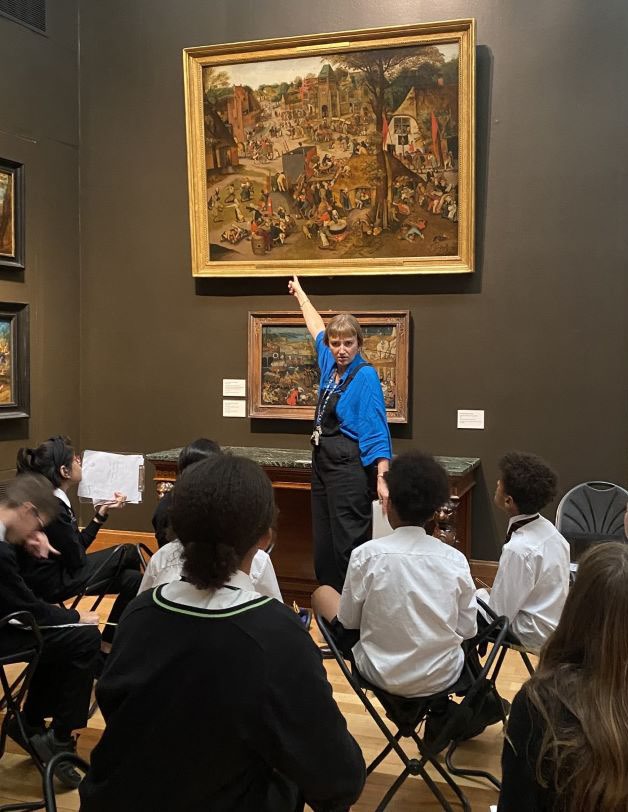
Following their visit, 93% of the students agreed/strongly agreed that they felt welcome at the Museum and commented on their enjoyment of the artwork, the building, taking part, and the staff:
“I enjoyed sharing ideas, and drawing and looking!”
“The best bit was when we created artwork using an inspired painting.”
“It was calm.”
Feedback from students, October 2023
Teachers who accompanied the students commented on the impact the visit had had, the quality of the work produced and the high levels of pupil engagement:
“Thank you so much for all your work with our Year 7 over the last two weeks. I’ve had some wonderful feedback from both students and staff and it was a joy to see the photographs from the event…”
“Our Year 7 students had a fantastic time exploring the different exhibitions in the Fitzwilliam Museum… [and] exploring the gallery space at Kettle’s Yard, its diverse collection of art, ceramics, textiles, furniture and natural objects. All the groups were engaged in the different activities, asking some fantastic and inquisitive questions, and producing some beautiful sketches inspired by what they saw in the collections.”
Feedback from teachers, October 2023
Case Studies: Health & Wellbeing
Focussing on programmes which promote wellbeing, and supporting agency, confidence and access for those experiencing health inequalities, the UCM Inclusion Team delivers a broad range of activity from work with elders in sheltered housing settings and those with a dementia diagnosis, to programmes
that improve physical access to our collections such as Touch Tours and hospital based sessions. This period has seen us engage with over 300 participants including those who are homeless or vulnerably housed.
Wintercomfort
Time and sensitivity are needed when developing trusting relationships with vulnerable groups and many of our Health and Wellbeing programmes have taken several years to develop, including our partnership with the homeless charity, Wintercomfort which started in 2011 and is now a key strand in our inclusion programme.
Working with smaller groups of participants, the sessions run monthly, focussing on different collections or themes, often influenced by suggestions or based on the interests of the group. A major aim of the visit is to offer a safe and welcoming space for the participants while offering opportunities for them to learn and contribute their own thoughts and experiences; essential to building the participants’ sense of agency.
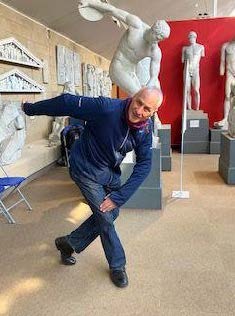
Reflecting on the benefits of the partnership, a lead Social Inclusion Project Worker at Wintercomfort
emphasises the trust that has been developed and comments:
“The manner of the group atmosphere and learning together – the back-and-forth two way discussion is important and makes this an accessible environment, in contrast to being homeless in the city which is a harsh environment. It changes participants’ experience of what might at first have felt an imposing or unfamiliar environment and turns it into a welcoming, inspiring educational place”.
Wintercomfort Project Worker
Feedback from participants highlights the enjoyment and learning opportunities the visits offer. At a session in December 2023 one participant explained that he enjoyed coming to the museums because:
“It gives me the opportunity to keep learning and gain ‘knowledge’, there is always so much to find out about”.
Wintercomfort participant, December 2023
Speaking to their Project Workers, other participants have commented that the visits have helped increase their self-confidence and willingness to try something new.
Programme Enablement
In addition to the delivery of our NPO-funded activity, we have facilitated a range of work across our consortium which has enabled workforce development and partnership working. We continue to support staff and volunteers in developing their knowledge and confidence to engage in decolonial practice. This has included two bitesize lunchtime talks featuring learning from exhibitions at MAA and Heong Gallery, and four talks as part of Black History Month from visiting academic Dr Carol Brown Leonardi.
UCM Forum
Featuring case studies, lightning talks, and findings from recent evaluation, our annual UCM Forum in December offered a chance for colleagues to network, share learning and celebrate work from
across the consortium. Aligning with our main NPO Activity Themes, presentations highlighted examples of sustainable conservation practice, work with vulnerable audiences, and the impact of
our disability-friendly openings and Power Walk programmes.
Over 90 people joined us for the event, many of whom were new to the UCM and who welcomed the opportunity to connect with others. Feedback highlights the overall importance of this event
among the UCM community with colleagues highlighting the value of taking time out from their own
organisations to hear about work elsewhere.

“It’s a great opportunity to meet people from the University’s other museums and to get some insight into what they’ve been doing over the past year.”
“[There were] lots of different topics which was great; a good chance to hear about the breadth of working happening at UCMs.”
“It’s really good to see short presentations from other museums and find out what people have been doing – there’s so much amazing work out there”.
Colleague feedback, December 2023

